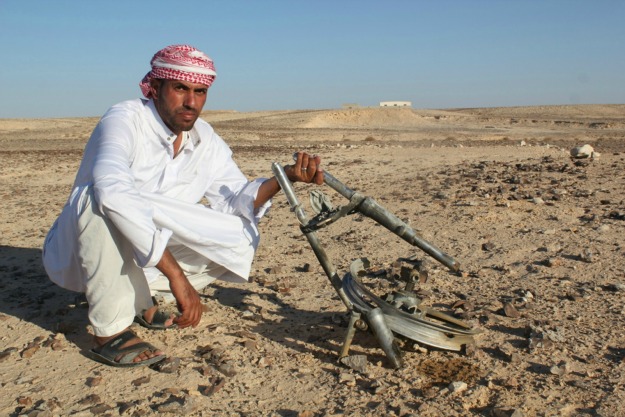POST
Hani Sabra
Monday, January 14, 2013

On January 25,
thousands of Egyptians will gather in Tahrir Square and across Egypt to commemorate
the uprising that toppled the Hosni Mubarak dictatorship. They will celebrate
with good reason. When Mubarak, pressured by millions in the streets and
ultimately betrayed by his own top generals, resigned on February 11, 2011, a
military-backed dictatorship that had ruled and largely abused Egypt for more
than half a century came to an end. Most Egyptians were euphoric, and the world
was transfixed by the unexpected power of the Tahrir Square freedom movement.
However, in
the two years since, the transition remains fragile, and Egypt's politics
remain dangerously polarized. In fact, in addition to celebration, there may
also be clashes on January 25. Today Egypt has an elected president, a new constitution,
and will soon hold parliamentary elections. But if Egypt has made halting steps
toward democracy, worrying signs of illiberalism and poor governance are increasingly
apparent. The outcome of the revolution in the Arab world's most populous
country remains uncertain, and the threat of violence looms large. Read More »
POST
Mara Revkin
Friday, January 11, 2013

Justice comes slowly to Egypt's Sinai Peninsula,
and sometimes not at all. In August 2012, local security officials announced that they were searching for 120 militants
wanted on charges of attacking police stations and killing 16 Egyptian soldiers
at a military post near the border with Israel. Six months later, they're still
looking. Police are few and far between, and those who do patrol the streets are increasingly the victims of the same crimes they are
trying to prevent. Police cars are hijacked in broad daylight while officers are gunned
down by masked assailants in a climate of brazen banditry and lawlessness that
Israeli Prime Minister Benjamin Netanyahu famously described as "a
kind of Wild West."
The 23,500
square mile Sinai desert has long been a sanctuary for militant Islamist
groups and smugglers operating along Egypt's porous border with the embargoed
Gaza Strip. But despite their strategic significance, the two governorates of
North and South Sinai are among Egypt's poorest and most politically marginal,
accorded a mere four seats each in the 508-member People's Assembly. Decades of neglect and economic
discrimination by the central government have fueled resentment among the Bedouin tribes that account for around 70
percent of the Sinai's 500,000 residents. It is estimated that only
10 percent of the
Bedouins are formally employed, and one
out of every four
does not possess a government ID card. Their many grievances -- including legal
obstacles to land ownership, lack of basic public services, job discrimination, and
systematic exclusion from military and police academies -- have reinforced a
climate of mutual distrust between the central government and the Sinai. Read More »
POST
Sulome Anderson
Wednesday, January 9, 2013

Safaa's home is a tiny room in Borj el Barajneh, a Palestinian
refugee camp in Lebanon, just minutes away from the flashy glamour of downtown
Beirut. She just turned 21, but she sleeps next to her 18-year-old brother and
eight-year-old sister.
According to Safaa, their father is in Jordan, unable to
return to Lebanon because he lacks the correct paperwork, while their mother
died last year from an electric shock caused by faulty wiring in the camp. The
three siblings are crammed into the second floor of their house because they've
given the ground floor to a family of Palestinians who fled Yarmouk refugee
camp in Syria four months ago. "We didn't know them before, but now we are like
one family," Safaa says with a smile. "It's easy to give people a room to live
in. If we don't take care of each other, who will take care of us?" Read More »
POST
Radwan Ziadeh
Tuesday, January 8, 2013

Since
the beginning of the Syrian Revolution in March 2011, the Assad regime has
transformed into a ruthless militia fighting a desperate battle against the
Syrian people. The regime hasn't just murdered thousands of Syrians, but also
wasted their wealth and, most significantly, destroyed the very fabric of
Syrian society. The longer Assad stays in power, the harder and more painful
the transitional period will be. Before it is too late, Syrians must form, and
the international community must support, a Syrian transitional government
based on liberated Syrian soil.
The
actions of the Syrian government have forced the country into a hateful
sectarian conflict and a horrifying civil war. The regime (or militia) has
repeatedly violated the Geneva conventions and failed to follow any rules of
war. For instance, live bullets have claimed the lives of some of Syria's
finest young non-violent activists, such as Ghayth Matar, Tamer al-Sharey, and
Hamzeh al-Khatib. Additionally, the regime has engaged in the monstrous and
inhuman practice of targeting hospitals and bread lines. However, the Syrian
people have steadfastly endured this horrible struggle for almost two years not
only to protect their movement and determination, but also, and more
importantly, to preserve their solidarity against a policy whose sole purpose
is to break them apart. Read More »

















 Read More
Read More





 Tunisia, like Egypt, is going through a rough patch. Surprise!
Tunisia, like Egypt, is going through a rough patch. Surprise!



